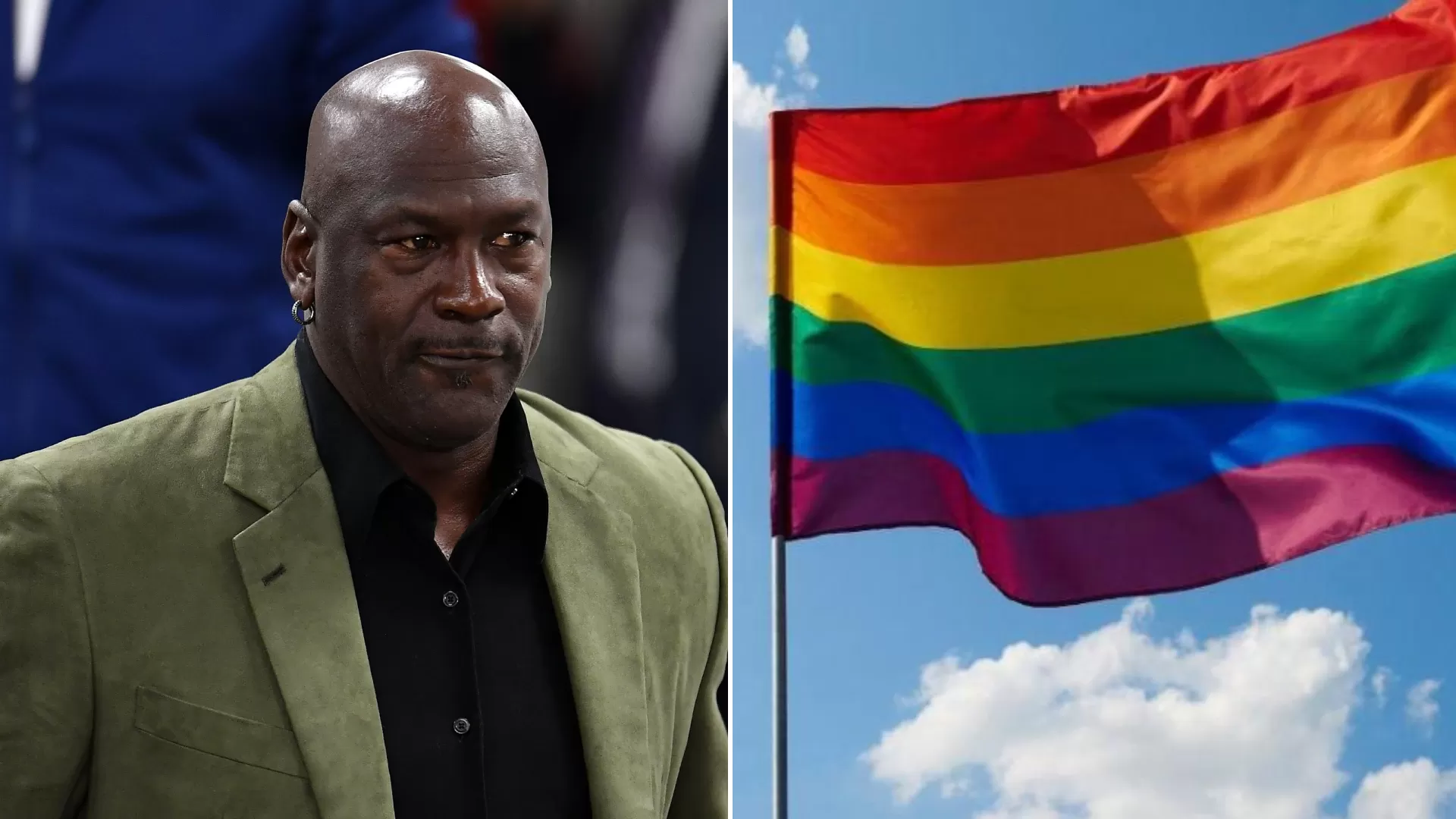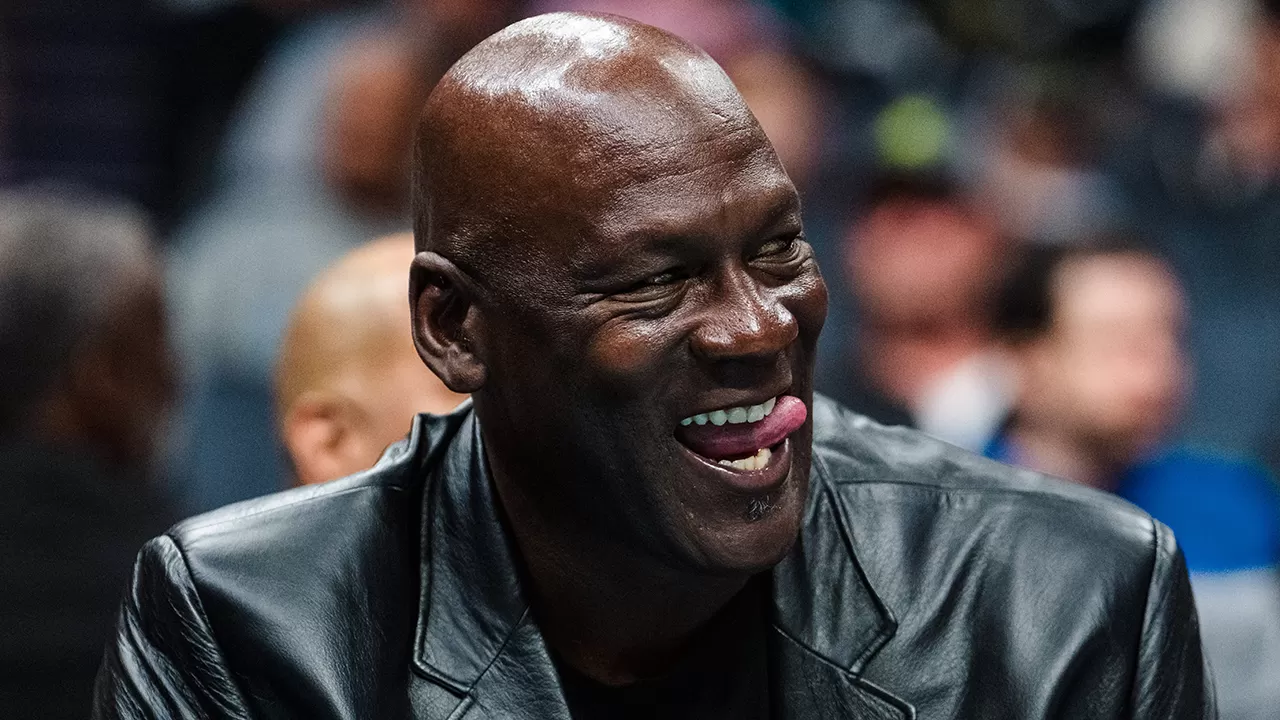Michael Jordan and the False Claims About a Pride Flag Ban: Debunking the Misinformation
In recent weeks, social media platforms have been inundated with claims that basketball legend Michael Jordan has proposed a ban on Pride flags in sports and U.S. schools.
This assertion has sparked intense debate, drawing reactions from different political and social factions. However, a thorough investigation reveals that these claims are entirely false and rooted in satirical misinformation.
In this article, we will break down the origins of this false narrative, the role of social media in spreading misinformation, and the importance of media literacy in the digital age.
The Origin of the Misinformation
The false claim originated from a satirical article published on January 4, 2025, by the website Esspots.com. The article, titled “Michael Jordan Calls for Ban on Pride Flags in Sports and Schools,” was clearly labeled as satire, with a disclaimer stating: “Note this is satire, it’s not true.”

Despite this explicit disclaimer, the claim took on a life of its own, spreading rapidly across social media as though it were factual news.
Soon after its publication, the fictional article was stripped of its satirical context and shared widely on platforms like Facebook, Twitter, and Instagram.
The speed at which it circulated showcases how easily misinformation can spread, especially when it aligns with certain biases or political narratives.
How Social Media Amplified the False Claim
Misinformation thrives in the fast-paced world of social media, where headlines and sensational claims often receive more engagement than factual reporting. In this case, the claim that Jordan had called for a ban on Pride flags was widely shared and repeated without verification.
For instance, a Facebook post dated January 26, 2025, stated: “BREAKING NEWS: Michael Jordan calls for a ban on the Pride flag in sports and U.S. schools.”

Similarly, an Instagram post on January 11, 2025, included an image of Jordan alongside a misleading caption suggesting that he had taken a strong stance against LGBTQ+ representation in sports and education.
The spread of this claim was not limited to social media alone. A number of blogs and lesser-known news websites picked up the false story, further amplifying its reach.
Many of these sources failed to mention that the original article was satirical, making it difficult for readers to distinguish between fact and fiction.
Fact-Checking and Official Responses
In response to the widespread misinformation, fact-checking organizations, including PolitiFact, stepped in to clarify the situation. Their investigation found no evidence supporting the assertion that Michael Jordan had ever made such a statement.
Furthermore, reputable news outlets confirmed that the claim was entirely fabricated and originated from a satirical source.
PolitiFact, in its report on January 27, 2025, emphasized: “The claim that Michael Jordan called for a ban on Pride flags in sports and schools is completely false. It stems from a satirical article that was taken out of context and misrepresented as factual news.”
Despite these clarifications, the misinformation has continued to circulate, underscoring the persistent challenge of combating fake news and misleading narratives in the digital era.

The Importance of Media Literacy
The rapid spread of the false claim about Michael Jordan highlights the need for greater media literacy among internet users. In an age where information is readily accessible, individuals must develop the skills to critically evaluate sources and verify facts before accepting claims as truth.
How to Spot Misinformation:
Check the Source: Always verify whether the information comes from a reputable news outlet. If a claim originates from a blog or an unknown website, it may not be credible.
Look for Disclaimers: Many satirical websites include disclaimers indicating that their content is fictional. If an article seems sensational or extreme, it is worth checking for such notices.
Cross-Reference Information: If a major claim is true, it will likely be reported by multiple established news organizations. Always check multiple sources before believing or sharing a claim.
Be Cautious on Social Media: Social media posts often lack context and can be easily manipulated. Before sharing, consider whether the information has been verified by a trusted source.
Understand Satire: Some websites and social media accounts specialize in satire or parody. Recognizing these sources can help prevent confusion between satire and legitimate news.
The Broader Implications of Misinformation
Misinformation like the false claims about Michael Jordan can have significant real-world consequences. Here are some of the broader implications:
Erosion of Public Trust: False narratives can diminish public trust in media and public figures, leading to increased skepticism and polarization.
Reputational Damage: Public figures like Jordan can suffer unwarranted damage to their reputations based on entirely false claims.
Policy and Public Opinion: Misinformation can shape public opinion and influence political decisions, sometimes leading to misguided policies based on false premises.

Michael Jordan’s Stance on Social Issues
While Michael Jordan has largely stayed out of political debates throughout his career, he has supported various philanthropic causes and spoken out on issues of social justice.
In 2020, he and his Jordan Brand pledged $100 million over 10 years to organizations dedicated to racial equality, social justice, and education access. However, there is no record of him making any statements regarding banning Pride flags in sports or schools.
Jordan’s approach to social and political issues has been characterized by a desire to remain neutral in highly polarized debates. The false claim that he proposed banning Pride flags is entirely inconsistent with his known public persona and actions.
The Role of Responsible Journalism
In the fight against misinformation, responsible journalism plays a crucial role. Journalists and media organizations have a duty to fact-check information before publishing and to provide context when reporting on satirical or misleading claims.
Additionally, social media platforms must continue to improve their efforts in flagging and mitigating the spread of fake news.
The viral claim that Michael Jordan proposed a ban on Pride flags in sports and schools is entirely false, originating from a satirical article that was misrepresented as factual news.
The incident highlights the dangers of misinformation and the critical need for media literacy in today’s digital landscape.
To prevent similar incidents in the future, individuals must take proactive steps to verify the accuracy of the information they consume and share.
By doing so, we can foster a more informed and less polarized society, where truth and accuracy prevail over sensationalism and falsehoods.
As we navigate an increasingly complex information ecosystem, it is essential to remain vigilant, question dubious claims, and prioritize facts over fiction.





